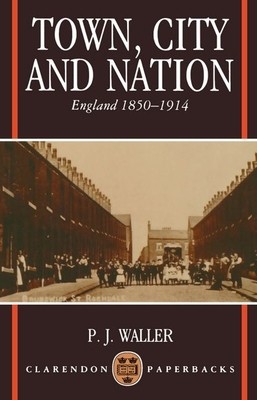
- We will send in 10–14 business days.
- Author: P J Waller
- Publisher: Clarendon Press
- ISBN-10: 0192891634
- ISBN-13: 9780192891631
- Format: 14 x 21.6 x 2 cm, minkšti viršeliai
- Language: English
- SAVE -10% with code: EXTRA
Reviews
Description
By the outbreak of the First World War, England had become the world's first mass urban society. In just over sixty years the proportion of town-dwellers had risen from 50 to 80 percent, and during this period many of the most crucial developments in English urban society had taken place. This book provides a uniquely comprehensive analysis of those developments - conurbations, suburbs, satellite towns, garden cities, and seaside resorts. Waller assesses the importance of London, the provincial cities, and manufacturing centers. He also examines the continuing influence of the small country town and "rural" England on political, economic, and cultural growth. Scholarly and readable, this book is a general social history of late nineteenth and early twentieth-century England, seen from an urban perspective.
EXTRA 10 % discount with code: EXTRA
The promotion ends in 21d.07:06:03
The discount code is valid when purchasing from 10 €. Discounts do not stack.
- Author: P J Waller
- Publisher: Clarendon Press
- ISBN-10: 0192891634
- ISBN-13: 9780192891631
- Format: 14 x 21.6 x 2 cm, minkšti viršeliai
- Language: English English
By the outbreak of the First World War, England had become the world's first mass urban society. In just over sixty years the proportion of town-dwellers had risen from 50 to 80 percent, and during this period many of the most crucial developments in English urban society had taken place. This book provides a uniquely comprehensive analysis of those developments - conurbations, suburbs, satellite towns, garden cities, and seaside resorts. Waller assesses the importance of London, the provincial cities, and manufacturing centers. He also examines the continuing influence of the small country town and "rural" England on political, economic, and cultural growth. Scholarly and readable, this book is a general social history of late nineteenth and early twentieth-century England, seen from an urban perspective.


Reviews